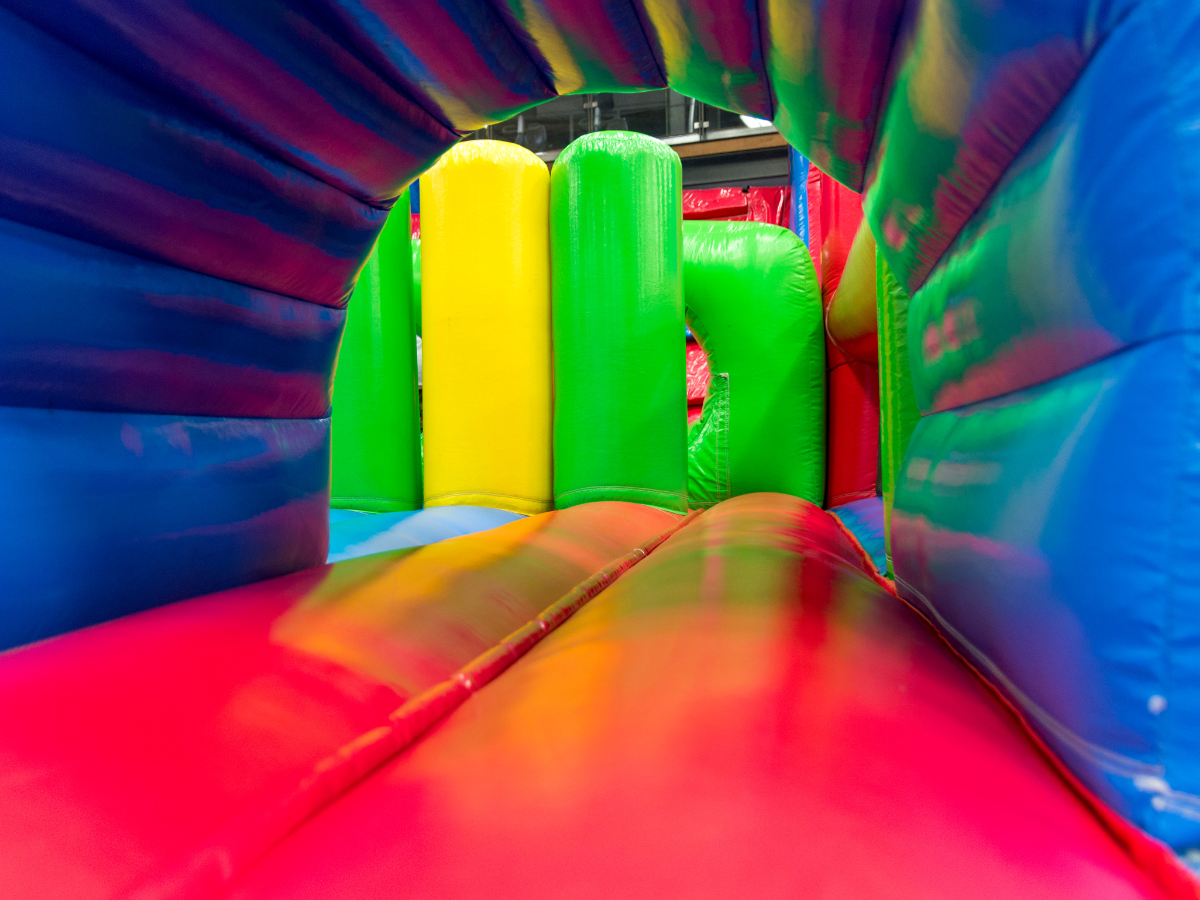What Are the Benefits of Indoor Play for Kids?
Indoor play is often overlooked in favor of outdoor activities, but it offers a wide range of benefits for children’s physical, mental, and emotional development. Whether it’s raining outside or the weather is too hot or cold, providing a safe and engaging environment indoors can stimulate creativity, improve motor skills, and even help with social development. In this blog, we’ll explore the benefits of indoor play for kids and how it contributes to their overall well-being.

1. Promotes Physical Activity
While outdoor play encourages physical exercise, indoor play can also provide opportunities for kids to stay active and improve their motor skills.
- Exercise in Disguise: Indoor play areas such as bounce parks, climbing structures, and obstacle courses encourage kids to engage in physical activity while having fun.
- Fine and Gross Motor Skills: Indoor play helps children develop both fine motor skills (like hand-eye coordination) and gross motor skills (such as balance and coordination). These activities also enhance strength and flexibility.
With a variety of indoor play options, children can get the exercise they need, even when outdoor play isn’t an option.
2. Fosters Creativity and Imagination
Indoor play offers children a space to be creative and use their imaginations to invent new games, scenarios, and stories.
- Stimulating Imagination: Toys, games, and building blocks are excellent tools to encourage children to create their own worlds and play out different characters and stories.
- Interactive Play: Activities like arts and crafts, puzzles, and pretend play allow children to explore new ideas, solve problems, and develop their cognitive abilities.
By providing the right indoor play materials, you can stimulate a child’s imagination and help them learn problem-solving skills in a playful way.
3. Enhances Social Skills
Indoor play can also be a great way for kids to develop social skills, especially in settings where they can interact with their peers.
- Group Activities: Indoor spaces that allow for group activities, such as games or team-based play, help children practice collaboration, communication, and empathy.
- Learning to Share and Take Turns: Playdates or shared indoor play areas teach kids how to share toys, take turns, and respect each other’s space and feelings.
Indoor play settings provide an ideal space for kids to learn essential social skills that they can apply in various settings, both at school and at home.
4. Encourages Cognitive Development
Indoor play isn’t just about physical activity; it also helps children develop their cognitive skills by encouraging them to think critically and solve problems.
- Puzzle Play: Games and puzzles challenge kids to think logically and critically, improving their problem-solving abilities.
- Learning Through Play: Educational toys and games that focus on numbers, letters, colors, and shapes promote early learning and help kids gain a deeper understanding of the world around them.
By incorporating educational games and interactive activities, indoor play can support children’s intellectual growth and learning abilities.
5. Provides a Safe and Controlled Environment
Indoor play offers a controlled environment, which is especially beneficial for younger children or children with special needs who may require extra safety precautions.
- Reduced Risk of Injury: Unlike outdoor play, where there may be more opportunities for children to trip or fall, indoor spaces often have padded floors, soft surfaces, and equipment designed for safety.
- Temperature Control: Regardless of the season or weather, indoor play areas allow children to play comfortably without the risk of overheating or exposure to extreme temperatures.
With proper supervision and safety measures, indoor play areas provide a secure space for kids to explore, learn, and interact.
6. Supports Emotional Well-Being
Indoor play can contribute to a child’s emotional well-being by providing a space where they can express themselves freely.
- Stress Relief: Physical play can help children release pent-up energy and stress, leading to a more relaxed and calm demeanor.
- Building Confidence: As kids tackle challenges in their indoor play activities, they build a sense of accomplishment and self-confidence. Whether it's mastering a climbing structure or completing a puzzle, success fosters a sense of pride.
Indoor play helps children manage their emotions and develop a strong sense of self-worth, which is essential for emotional development.
7. Great for Year-Round Fun
One of the greatest benefits of indoor play is that it can be enjoyed year-round, regardless of external weather conditions. Whether it’s summer or winter, rainy or sunny, children can always engage in stimulating activities indoors.
- Year-Round Access: Having a dedicated indoor play area ensures that children always have a space to have fun and stay active, no matter the season.
- Uninterrupted Play: Indoor play is also unaffected by environmental factors such as pollution or extreme weather, providing kids with a consistent and enjoyable experience.
With indoor play, the fun never has to stop, regardless of the season or weather outside.
Conclusion
Indoor play offers many benefits for kids, from physical exercise to enhanced creativity, social skills, and cognitive development. It’s an essential part of childhood that helps children grow in a safe, controlled, and fun environment. Whether you're looking for a rainy-day activity or a way to supplement outdoor play, providing kids with opportunities to engage in indoor play is a fantastic way to promote their well-being.
At Impact Fun Zone, located in East Stroudsburg, PA, we provide a fun and safe indoor play area for children of all ages. Our facility is designed to foster creativity, learning, and physical activity, all while keeping kids entertained for hours. Contact us today to learn more about our offerings and how we create a memorable and beneficial experience for children through indoor play.
















